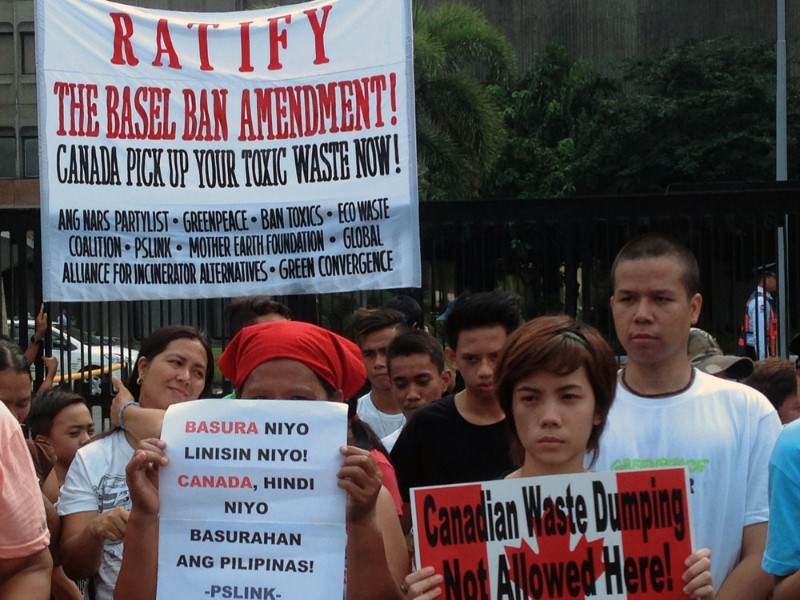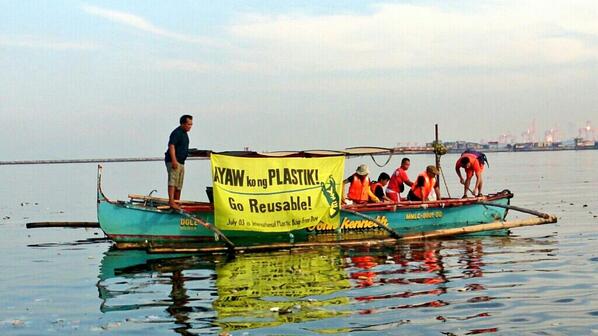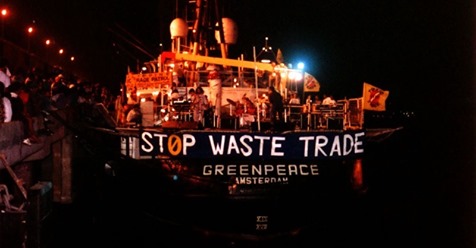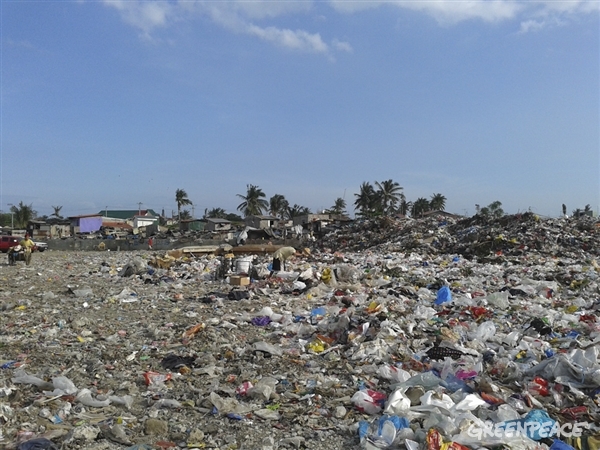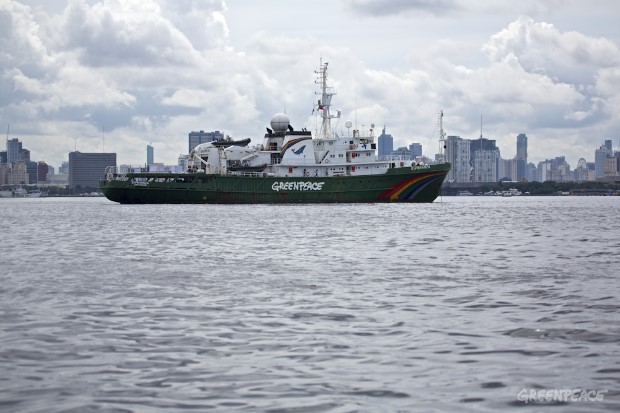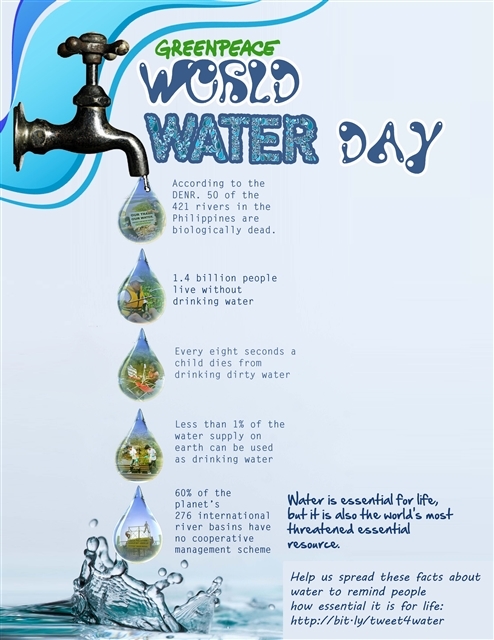-
Envi orgs slam disposal of Canadian waste in PH landfill
Manila – Environmental and public health groups expressed frustration and disappointment over the sudden disposal of 29 of the 50 container vans containing mixed wastes that were illegally imported from Canada, despite the absence of a court order directing the illegal shipment’s disposal.
-
Greenpeace ranking reveals fashion companies’ action on toxic pollution
Beijing/ Manila, 19 March 2015 – Greenpeace East Asia today released its Detox Catwalk, an online platform assessing how effectively major fashion brands are removing toxic chemicals from their supply chains and tackling water pollution [1]. Inditex (which owns Zara), Fast Retailing (which owns Uniqlo) and H&M join 13 other ‘Detox Leaders’ in this year’s…
-
Groups demand immediate return of Canadian toxic waste
As the illegal Canadian toxic waste shipments fester in Philippine ports for 16 months, public furor over the Canadian government’s brazen defiance of international law erupted anew in Manila as environment and public health groups staged a street protest in front of the Department of Foreign Affairs (DFA) commemorating the signing of the flawed international…
-
Reducing our Plastic Footprint
Today, July 3, is International Plastic Bag Free Day. Globally, citizens and organizations are organizing activities highlighting the issue of plastic bag use and its effects, thereby strengthening the call…
-
Greenpeace calls for ratification of Basel Ban Amendment following discovery of Canadian toxic shipment
Manila, Philippines—Environmental group Greenpeace today expressed alarm at the discovery of fifty container vans from Canada, supposedly carrying plastic scraps, but found to contain a mixture of different household waste that include adult diapers, and plastic containers with liquids.
-
Cavite City Open Dumpsite: A Pile of Lessons
All of us produce waste each day, and what you or I consider waste might not be worthless to someone else. But have you ever wondered where our personal, household, and office wastes are being disposed? Have you ever asked where your waste goes, what happens to it once you throw it out and what…
-
Illegal dumpsite in Manila Bay shut down by Greenpeace, EcoWaste Coalition
Manila—Early this morning activists from Greenpeace Southeast Asia, crew from the Greenpeace ship Esperanza, and members of EcoWaste Coalition shut down Pier 18, an illegal dumpsite, operating on the shores of Manila Bay.
-
Comprehensive rehab of Manila Bay is possible, necessary
Manila —The Greenpeace ship, Esperanza, arrived today in Manila Bay amid calls for a comprehensive rehab of the country’s most famous body of water. The call came as scientists from the University of the Philippines-Marine Science Institute (UP-MSI) conducted research demonstrations meant to underscore the extent of toxic pollution in the area.
-
World Water Day: Breaking the wasteful habit
This morning, as soon as I woke up, I used and flushed a toilet, took a bath, brushed my teeth – all with water running inside the house. I feel good and blessed that there is abundant supply of water at home, but eventually thought of people from other parts of the world with no…
-
Greenpeace to DENR: Implement pollution disclosure to save our rivers
Manila—Environmental group Greenpeace today welcomed the Department of Environment and Natural Resources’ (DENR) recent moves to address water pollution in the Philippines but said that the government agency must do more to save the country’s polluted water bodies. Greenpeace said that the first step must be pollution disclosure, or mandatory reporting by factories about the…


